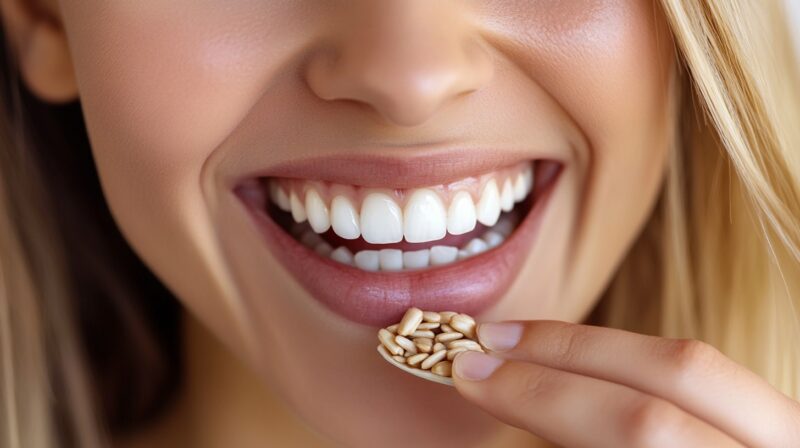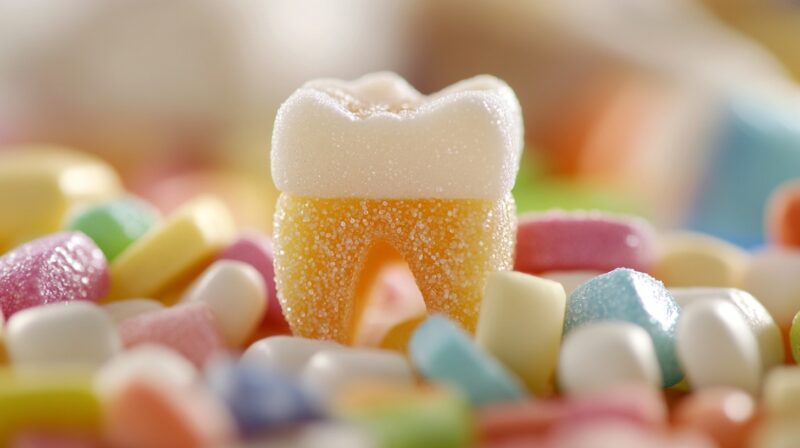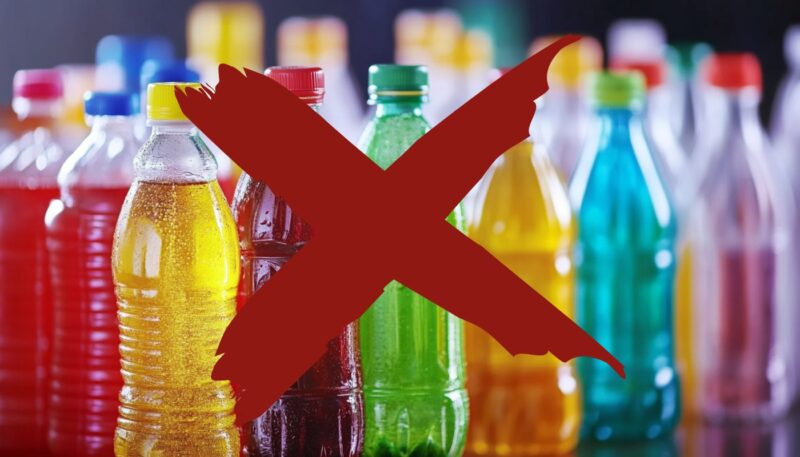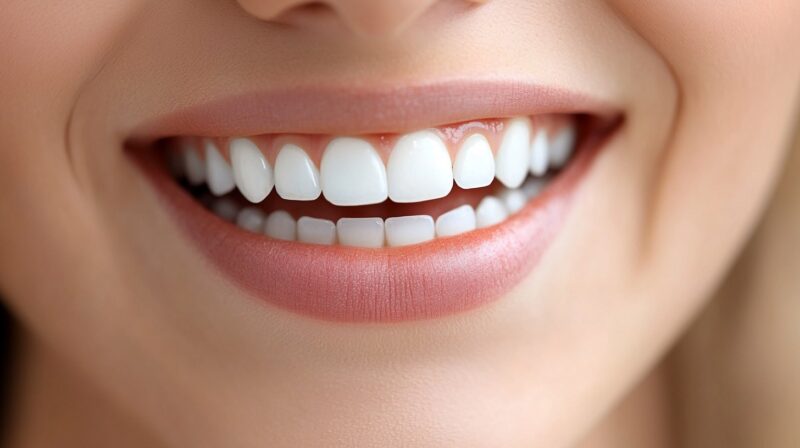Strong teeth play a crucial role in overall health, allowing for proper digestion, clear speech, and a confident smile.
Many believe expensive dental treatments are the only way to maintain strong teeth, but natural approaches can be just as effective.
Simple dietary changes, good oral care practices, and natural remedies help fortify enamel, protect gums, and prevent decay.
Adopting these habits consistently leads to long-term dental health without the need for costly interventions.
Nutrition and Diet for Stronger Teeth
What goes into the body directly affects oral health. Teeth need a steady supply of essential nutrients to remain strong and resistant to decay. A diet filled with minerals, vitamins, and balanced hydration helps enamel stay intact while supporting gum health.
Making the right food choices can prevent erosion, reduce bacterial growth, and create an environment where teeth can naturally remineralize.
The key is to focus on nutrient-dense foods, limit damaging ingredients, and stay hydrated to promote saliva production.

Eat Mineral-Rich Foods
Minerals are the foundation of strong teeth. They help maintain enamel density and protect against damage caused by daily wear and bacterial acids.
- Calcium – A vital mineral for enamel strength, calcium is found in:
- Dairy products (milk, cheese, yogurt)
- Leafy greens (kale, spinach, bok choy)
- Fish with edible bones (sardines, canned salmon)
- Phosphorus – Works with calcium to reinforce enamel and prevent weakening. Good sources include:
- Meat (beef, chicken, turkey)
- Eggs
- Nuts and seeds (sunflower seeds, almonds)
- Magnesium and Zinc – Support gum tissue health and prevent bacterial growth. Found in:
- Whole grains (brown rice, quinoa, whole wheat bread)
- Pumpkin seeds
- Legumes (lentils, chickpeas, black beans)
- Vitamins D and K2 – Help the body absorb and direct calcium to the teeth. Sources include:
- Fatty fish (salmon, mackerel, tuna)
- Cheese
- Fermented foods (natto, sauerkraut, kefir)
Reduce Sugar and Refined Carbs

Sugar and refined carbohydrates contribute to tooth decay by feeding harmful bacteria that produce enamel-eroding acids. According to TannlegeTeam, limiting these foods can significantly lower the risk of cavities and gum disease.
- Feeds bacteria that create acid, leading to demineralization
- Increases plaque buildup, which weakens enamel
- Causes inflammation in the gums, increasing the risk of gum disease
How to cut back on sugar:
- Reduce sugary snacks, candies, and processed foods
- Avoid soft drinks, sweetened teas, and flavored coffees
- Choose whole foods over processed options
Better alternatives:
- Natural sweeteners like xylitol, which helps prevent bacterial overgrowth
- Fruits with natural fiber, such as apples and berries, to satisfy cravings without excess sugar
- Dark chocolate (low sugar varieties) instead of milk chocolate
Making small adjustments in daily eating habits can prevent sugar-related damage and promote healthier teeth.
Limit Acidic Foods and Drinks

Acidic foods and beverages gradually erode enamel, making teeth more vulnerable to cavities and sensitivity.
While some acidity is unavoidable, managing intake and counteracting its effects can prevent significant damage.
- Citrus fruits (oranges, lemons, grapefruits)
- Carbonated drinks (soda, sparkling water)
- Coffee and wine
- Vinegar-based foods (pickles, salad dressings)
Ways to minimize acid damage:
- Drink acidic beverages through a straw to limit direct contact with teeth
- Rinse the mouth with water after consuming acidic foods
- Wait at least 30 minutes before brushing after eating acidic foods to avoid further enamel wear
- Pair acidic foods with calcium-rich items (e.g., cheese with fruit) to neutralize acidity
A few mindful choices can reduce the impact of acids and help teeth retain their protective outer layer.
Hydration and Saliva Production

Saliva plays a crucial role in maintaining oral health by washing away food particles, neutralizing acids, and delivering minerals to the teeth.
Staying hydrated and promoting saliva flow naturally helps prevent decay and keeps the mouth fresh.
- Neutralizes acids that cause enamel erosion
- Helps wash away bacteria and food debris
- Contains minerals that assist in remineralizing enamel
Ways to promote saliva production:
- Drink plenty of water throughout the day
- Chew sugar-free gum to stimulate saliva flow
- Eat fibrous fruits and vegetables (apples, carrots, celery) to encourage chewing and natural saliva release
- Avoid dehydrating substances like alcohol and excessive caffeine
Maintaining proper hydration and encouraging saliva production are simple but effective strategies for protecting teeth naturally.
Natural Oral Care Practices
Maintaining strong and healthy teeth goes beyond just brushing twice a day.
A well-rounded oral care routine includes additional practices that help protect enamel, fight bacteria, and support gum health.
Simple habits like oil pulling, using proper brushing and flossing techniques, and cleaning the tongue contribute to overall dental hygiene.
These methods reduce the risk of cavities, gum disease, and bad breath without relying on harsh chemicals or expensive treatments.
Oil Pulling
Oil pulling is an ancient practice that involves swishing oil in the mouth to remove toxins and harmful bacteria. Traditionally done with coconut or sesame oil, this technique has been used for centuries in holistic medicine to promote oral health.
- Reduces bacteria that cause plaque and gum disease
- Helps remove toxins that contribute to bad breath
- Strengthens gums by reducing inflammation and irritation
- May whiten teeth by removing surface stains over time
- Supports saliva production, which helps neutralize acids in the mouth
How to Practice Oil Pulling:
- Choose organic coconut, sesame, or sunflower oil
- Take about a tablespoon of oil and swish it around your mouth for 15–20 minutes
- Do not swallow the oil, as it contains bacteria and toxins
- Spit the oil into a trash can (not the sink, as it can clog pipes)
- Rinse with warm water and brush your teeth as usual
For best results, oil pulling should be done daily before eating or drinking in the morning.
Proper Brushing and Flossing Techniques

Brushing and flossing correctly ensures teeth and gums remain strong while minimizing damage to enamel. Many people brush too aggressively or use products that contain harsh chemicals, leading to sensitivity and gum recession.
- Use a soft-bristled toothbrush to prevent enamel wear
- Brush in gentle circular motions, focusing on all surfaces of the teeth
- Avoid brushing too hard, as excessive pressure can lead to gum damage
- Choose fluoride-free toothpaste with natural remineralizing agents like hydroxyapatite or calcium phosphate
- Replace your toothbrush every three months or sooner if the bristles become frayed
Flossing Best Practices:
- Floss at least once a day to remove plaque and food particles between teeth
- Use a gentle sawing motion rather than snapping the floss between teeth
- Curve the floss around each tooth, sliding it slightly under the gumline
- Consider using a water flosser if traditional flossing is difficult
Proper brushing and flossing habits significantly reduce the risk of cavities and gum disease while preserving enamel strength.
Tongue Cleaning
The tongue harbors bacteria that can lead to bad breath, plaque buildup, and even tooth decay if not cleaned regularly.
While many people focus on brushing and flossing, tongue cleaning is an essential part of a complete oral care routine.
- Removes bacteria that contribute to bad breath
- Prevents the buildup of harmful microorganisms
- Enhances taste perception by removing residue on the tongue
- Reduces bacterial transfer to teeth and gums
How to Clean the Tongue Effectively:
- Use a tongue scraper or the back of a toothbrush designed for tongue cleaning
- Gently scrape the tongue from back to front, removing any buildup
- Rinse the scraper or brush after each pass to remove bacteria
- Clean the tongue at least once a day, preferably in the morning
Adding tongue cleaning into a daily routine improves overall oral hygiene while reducing bacterial growth in the mouth.
Lifestyle Changes for Better Oral Health
Daily habits have a direct impact on dental health, influencing the strength of enamel, gum condition, and overall oral hygiene.
Small adjustments in lifestyle can help protect teeth, reduce decay risk, and prevent long-term issues.
Eliminating harmful behaviors and adopting protective measures contribute to a healthier mouth without relying on expensive treatments.
The following changes are essential for maintaining strong teeth and gums.

Avoid Teeth Grinding (Bruxism)
Grinding teeth, often occurring unconsciously during sleep, places excessive pressure on enamel, leading to wear, fractures, and heightened sensitivity.
The condition can also contribute to jaw pain, headaches, and temporomandibular joint (TMJ) disorders.
Identifying the root cause and taking preventive measures can significantly reduce damage.
- A custom-fitted nightguard acts as a protective barrier, preventing teeth from grinding against each other. Over-the-counter options exist, but professionally made guards provide better comfort and protection.
- Anxiety and stress are common triggers for bruxism. Meditation, deep breathing exercises, and mindfulness techniques can lower stress levels, reducing the likelihood of clenching and grinding.
- Some individuals clench their jaws while working, driving, or focusing. Recognizing and consciously relaxing the jaw throughout the day can help minimize strain.
- Stimulants like coffee and alcohol can increase muscle activity in the jaw, exacerbating grinding. Reducing intake may help alleviate symptoms.
Quit Smoking and Reduce Alcohol Intake
Tobacco and alcohol negatively impact oral health in multiple ways, weakening gums, promoting bacterial growth, and contributing to long-term dental issues. Eliminating or reducing these habits supports healthier teeth and gums.
- Smoking decreases blood flow to the gums, making them more prone to infections and slowing the healing process. Weaker gums are more susceptible to disease and recession.
- Chemicals in tobacco damage cells inside the mouth, increasing the likelihood of cancer in the lips, tongue, and throat. Regular dental checkups are crucial for early detection.
- Alcohol consumption reduces saliva production, creating a dry environment where bacteria thrive. This raises the risk of cavities and gum disease.
- Nicotine and tar in tobacco stain enamel, while alcohol can contribute to long-term discoloration. Both substances also contribute to persistent bad breath.
- Cutting back or quitting tobacco and alcohol allows the body to heal, improving gum strength, saliva production, and overall dental hygiene.
Today is #WorldStrokeDay.
This is how you can prevent stroke:
🚭 Quit smoking
🍺 Limit alcohol consumption
🛑 Control high blood pressure and high cholesterol
✅ Manage diabetes
🏋🏾♀️ Watch your waist and weight
🍏 Eat healthy
🏃🏾♂️ Exercise regularly 30 minutes a day#BeatNCDs pic.twitter.com/4tGteCrPry— World Health Organization (WHO) (@WHO) October 29, 2020
Manage Acid Reflux and Stomach Health
Stomach acid plays a role in breaking down food, but when it reaches the mouth due to acid reflux, it erodes enamel and weakens teeth.
Preventing acid exposure is essential for maintaining strong enamel and reducing sensitivity.
- Frequent heartburn, regurgitation, and an acidic taste in the mouth indicate that stomach acid is reaching the teeth. Seeking medical advice can help determine the best course of action.
- Consuming smaller meals, avoiding late-night eating, and staying upright after meals can prevent acid from backing up into the esophagus.
- A diet with probiotics (found in yogurt, kefir, and fermented vegetables) and fiber-rich foods (such as whole grains and leafy greens) supports digestive health, reducing reflux episodes.
- Drinking water helps neutralize acid and wash away any residue that may linger in the mouth. Sipping water throughout the day can aid in keeping enamel protected.
- Citrus fruits, spicy foods, chocolate, and caffeine can trigger acid reflux. Identifying and reducing the intake of these foods may help prevent acid exposure to teeth.
Making these adjustments can significantly enhance dental health, reducing the risk of enamel erosion, gum disease, and long-term oral complications. Small but consistent efforts contribute to a stronger, healthier smile.
The Bottom Line
Strengthening teeth naturally does not require expensive treatments or complicated routines.
Neglecting proper dental care can lead to severe oral health issues, which may result in the need for unpleasant procedures that could rival some of the most disgusting jobs
A combination of nutrient-dense foods, proper oral care, lifestyle adjustments, and natural remedies creates a solid foundation for long-term dental health.
By prioritizing these simple habits, anyone can maintain strong teeth and a healthy smile well into the future.
Hello, my name is James Willett. I am a marketing veteran, with decades of experience under my belt. At one point, I decided to share my experience with others, especially those who are making baby steps in marketing. Therefore, I decided to join fine folks at PulseBluePrint.com where I share my insights on all sorts of marketing. I hope you will find my insights useful.







